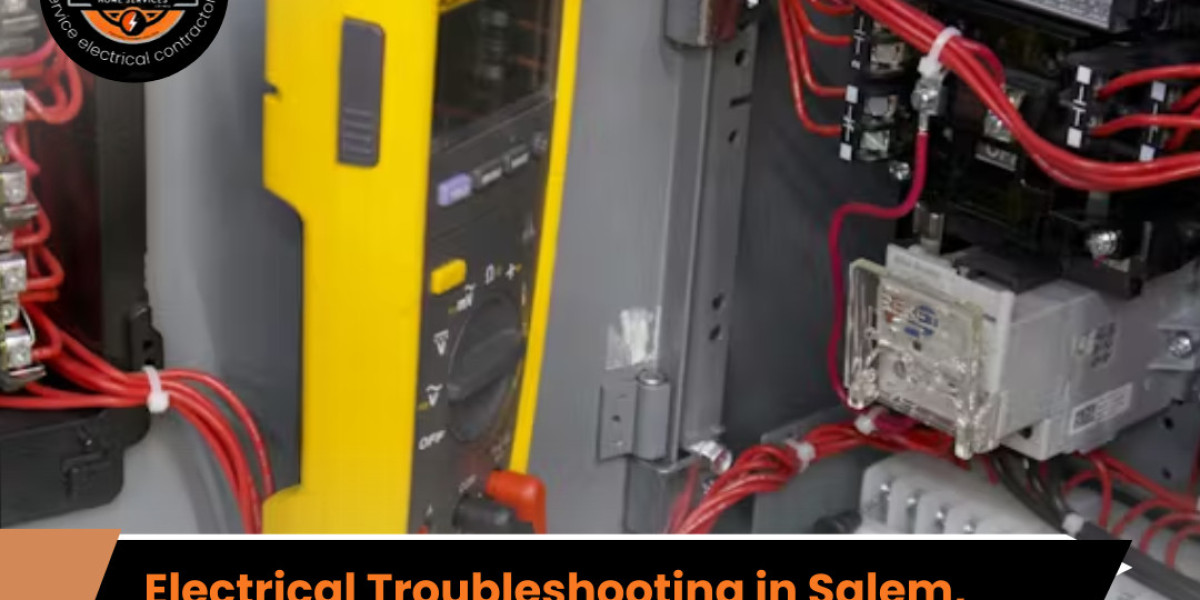Even the most well-built homes are not immune to the occasional flickering light, tripping breaker, or malfunctioning outlet. These are not just minor annoyances—they can point to issues within a home’s electrical system. Anyone experiencing persistent electrical glitches may need expert-level electrical troubleshooting in Salem, Oregon, to restore safety and functionality.
Electrical systems are complex, and when something goes awry, it often requires more than a quick fix. This article offers a comprehensive walk-through of electrical fault detection, common repair approaches, and when it's time to contact licensed professionals like electricians in Salem, Oregon. Whether the problem is an isolated outlet or a recurring overload, having the right information is key to a safe and swift resolution.
Understanding the Basics of Residential Electrical Systems
Home electrical systems are networks of wires, breakers, switches, and connections that power everything from lights to large appliances. Over time, even small issues can evolve into serious hazards if not addressed correctly.
Key Components at a Glance
Circuit Breakers: These control and protect electrical flow by cutting power during surges.
Wiring: Conducts electricity between the panel and outlets or fixtures.
Outlets and Switches: Interface points that deliver or control power in daily use.
Troubleshooting begins with identifying the root cause of a malfunction. That might mean tracing back from a flickering light to an overloaded circuit or examining a tripped breaker caused by a faulty appliance.
Signs That Signal Deeper Electrical Issues
Occasional hiccups may not seem alarming, but recurring issues could indicate outdated wiring, overloaded systems, or hidden faults. Recognizing these early can help avoid more significant disruptions.
What to Watch For
Frequent breaker trips, especially on the same circuit
Lights dimming when appliances power on
Outlets that spark or feel warm to the touch
Buzzing sounds near outlets or electrical panels
These are not quirks—they’re red flags. Each symptom represents a potential failure point within the system, often requiring home electrical repair in Salem, Oregon, for professionals to conduct safe diagnostics and repairs.
Diagnosing Problems: What Skilled Technicians Look For
Effective troubleshooting starts with the right tools and knowledge. Professionals use specialized devices like multimeters, circuit testers, and thermal imaging to pinpoint faults.
Step-by-Step Troubleshooting Techniques
Visual Inspection: Technicians look for discoloration, frayed wires, and signs of overheating.
Circuit Isolation: By switching off different breakers, it's possible to isolate problematic areas.
Voltage Testing: confirms outlets and wires deliver the expected power levels.
Load Analysis: Checks whether too many devices draw power from one circuit.
These methods help accurately identify the issue and guide a targeted repair strategy—whether it's replacing old wiring, adjusting breaker loads, or correcting a faulty ground connection.
Common Problems Found During Electrical Troubleshooting
Patterns emerge in the types of issues that plague homes, especially older ones. Addressing them correctly prevents repeat problems and keeps systems functioning as designed.
Recurring Issues in Residential Homes
Loose Wiring: Over time, vibration and heat cycles loosen wire connections.
Overloaded Circuits: Adding high-demand devices to old wiring can cause persistent tripping.
Faulty Switches or Outlets: Age, damage, or moisture exposure can lead to malfunction.
Aging Panels: Panels from previous decades may not support modern electrical loads safely.
Correcting these often involves home electrical repair Salem, Oregon services that go beyond a surface-level fix. Replacing components or rerouting circuits might be necessary for long-term solutions.
Preventative Measures to Avoid Future Electrical Faults
Being proactive is key to avoiding future troubleshooting headaches. Routine inspections and smart planning can significantly reduce the risk of major disruptions.
Homeowner-Friendly Tips
Use surge protectors for sensitive electronics.
Avoid plugging multiple high-wattage appliances into the same outlet.
Replace outlets that show signs of wear immediately.
Schedule periodic checks, especially in older homes.
Professional evaluations every few years—especially after renovations—help identify wear-and-tear or capacity issues before they become hazards.
Electrical Panels and System Capacity: A Closer Look
One of the most overlooked yet critical elements of any home system is the main panel. It dictates the amount of power the home can use safely. As households adopt more electronics, HVAC systems, or electric vehicles, older panels may not keep up.
Signs a Panel May Be Obsolete
Lack of space for new breakers
Visible rust or corrosion
Excessive heat from the panel
Fuses instead of modern breakers
Upgrading panels is not just about adding more power. It's also a safety investment. A modern panel minimizes the chance of overload and supports energy-efficient living. This is a frequent need identified during electrical troubleshooting in Salem, Oregon, services across residential neighborhoods.
When DIY Isn’t Enough
Some tasks—like resetting a tripped breaker or replacing a light switch—are safe for experienced homeowners. But many issues require advanced knowledge and the right tools.
When to Involve Professionals
Repeated breaker trips with no visible cause
Burnt smells or signs of melted plastic
Adding new appliances that draw significant power
Flickering lights across multiple rooms
This is where trained experts step in. With experience and safety training, they can handle even complex rewiring or panel replacements without guesswork. Involving professionals for home electrical repair in Salem, Oregon, also helps avoid voiding warranties or violating local codes.
Why Licensing and Local Knowledge Matter
Electrical codes and safety standards vary from state to state. In Oregon, licensed technicians must meet strict requirements that guarantee a base level of expertise.
Benefits of Hiring Certified Technicians
Knowledge of local building codes and permitting processes
Insurance coverage that protects homeowners from liability
Professional-grade tools and diagnostics
Assurance that work is done right the first time
For homeowners in the Pacific Northwest, especially around Salem, working with licensed electricians in Salem, Oregon, offers both peace of mind and long-term reliability. Local experience also means faster identification of region-specific electrical challenges, from moisture exposure to seasonal load demands.
Planning: Smart Homes and Future Readiness
With smart homes becoming the norm, electrical systems are being pushed further. From thermostats to security systems, more devices rely on uninterrupted power and seamless integration.
What This Means for Homeowners
Plan circuits with extra capacity for future upgrades.
Confirm Wi-Fi-dependent systems have battery backups.
Coordinate electrical work with other home technology installations.
Forward-thinking planning saves time and money down the road. Electrical troubleshooting today can reveal areas needing adjustment to support a smarter, more connected future.
Conclusion
Every home tells a story through its wiring. From the quiet hum of a refrigerator to the whirr of a ceiling fan, electricity powers comfort and convenience. Yet, when something goes wrong, swift and informed action is key. Whether it’s flickering lights, buzzing switches, or overloaded circuits, electrical troubleshooting in Salem, Oregon, offers homeowners a way to diagnose and correct issues efficiently.
For those needing thorough diagnostics or repairs, professional home electrical repair in Salem, Oregon, delivers both safety and results. And when the problem extends beyond what can be seen, skilled electricians in Salem, Oregon, offer the expertise to restore peace of mind—one wire, outlet, or breaker at a time.








